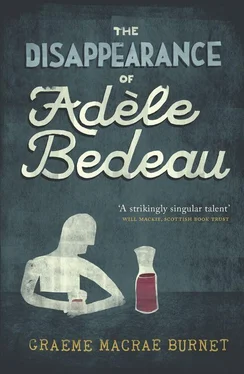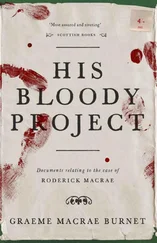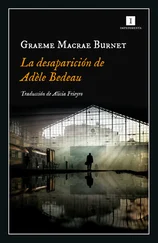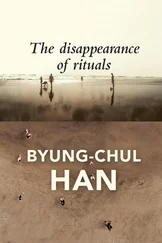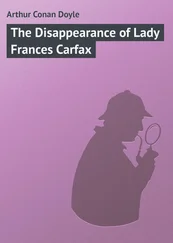However, as Gorski reached his teenage years he was drawn in a different direction. He became aware of another side of his father’s business. Now and again, policemen came into the shop. These were not uniformed gendarmes , but world-weary detectives in crumpled raincoats. They would ask if Monsieur Gorski had recently come into possession of such-and-such an item. He would invariably give such queries careful consideration before shaking his head slowly or calling over his shoulder to his wife: ‘Madame Gorski,’ — as he always addressed her in the shop — ‘Could you bring out the silver necklace that came in on Wednesday?’
If the article turned out to be what the detective was looking for, Monsieur Gorski would provide the name he had been given by the customer and furnish the detectives with an invariably vague description. The policeman would thank him and leave with the item. Monsieur Gorski never betrayed any emotion after these encounters. He had, after all, been left out of pocket, but Gorski came to realise that he regarded such things as an occupational hazard, or perhaps more accurately as an inevitable business expense.
Gorski began to recognise certain customers, each of whom had their own speciality. He noticed that his father always offered these characters a lower price for their items than he would to other customers, but they never haggled or stormed out with their goods. They merely accepted whatever Monsieur Gorski was prepared to offer. Gorski realised that his father was an intermediary in a dance between the cops and the curiously meek burglars, thieves and opportunists who made use of his services.
Gorski began to look forward to the visits of the detectives. He admired the dignity with which they conducted their business with his father. Each party knew exactly what was going on, but betrayed none of this in the manner with which they dealt with one other. One cop in particular fascinated Gorski. He was in his fifties and a little more talkative than the others. Before he came to the point of his visit, he would browse for ten minutes or so, commenting on certain items. He appeared to know a little about art and would sometimes embark on a lengthy critique of a landscape or portrait that caught his eye. He appeared to like Monsieur Gorski and it was in the company of Inspector Ribéry that Monsieur Gorski came closest to letting his sober weekday manner slip. He enjoyed discussing paintings with the detective and would join him in front of a particular picture and contribute his own remarks about the brushstrokes or the way the artist had captured the light. These discussions sometimes became quite animated before the inspector abruptly brought them to a halt and broached the real subject of his visit. Then the two men would resume their professional demeanours as if nothing else had passed between them.
At the age of sixteen, Gorski was expected to leave school and gradually take over the running of the business. Neither his father nor mother had ever asked their son what he planned to do, but as the end of the school year approached, it became clear that it had never occurred to them that he might wish to continue his studies. They were not people to whom education meant a great deal. Comments were passed about how useful it would be to have him around the shop more often.
The knowledge that he meant to disappoint his father weighed heavily on the young man. He brooded for weeks about how to broach the subject. Certainly, it would not come up in the course of conversation. The Gorskis were not a family for chit-chat. In the shop they only spoke about business, and the evening meal was eaten for the most part in silence. The young Gorski began to resent his father for taking him for granted, for not considering that he might have other — loftier, he thought — aspirations. He became surly and uncooperative, in an immature attempt to provoke his father into enquiring what the matter was. But he never did.
In the end, Gorski’s hand was forced. One evening, as the plates were being cleared, he made his announcement: ‘I mean to become a policeman.’
Monsieur Gorski raised his head from his paper and looked at his son over the rims of his reading glasses. He pursed his lips and nodded slowly, as if he had been expecting this all along.
‘An excellent profession,’ he said. ‘I know many fine policemen.’
He returned his gaze to the newspaper and after half an hour, put on his coat and went, as usual, to the Restaurant de la Cloche.
A week later Gorski was summoned upstairs on his return from school. Inspector Ribéry was seated at the dining table with a small glass of cognac. Monsieur Gorski stood nervously by the window as if it would be impolite to sit in the presence of his social superior. Gorski stood at the table in front of the inspector. He had a large equine face and small beady eyes.
‘Your father tells me that you wish to become a policeman.’
‘Yes, monsieur,’ Gorski replied.
The inspector nodded approval as if he was hearing this information for the first time.
‘A detective,’ said Gorski, overcoming his shyness, ‘I want to be a detective.’
The inspector nodded again. ‘You should stay on at school. Come and see me when you’re eighteen and we’ll see what we can do.’
And that was that. Gorski remained at school. His father no longer had him help out in the shop. Perhaps he no longer saw the point, or perhaps he did not want the future detective training his eye on his more questionable dealings. It was never discussed. Instead, Gorski spent his weekends labouring on the farm of a family acquaintance. He enjoyed being outside, away from the stale atmosphere of the shop. He spent the money he earned on detective novels and books on criminology and psychology. He devoured Simenon, learning, he thought, the subtle arts of detection from the inscrutable Maigret.
When the time came, Gorski presented himself at Ribéry’s office. Of course, he would have to serve his time on the beat like any other cop, the inspector explained. The statement puzzled Gorski, as it seemed to suggest that he was not like any other cop. Gorski did indeed spend three years on the beat, but Ribéry often pulled him from the rota and took him to inspect a crime scene or to observe the questioning of a suspect. He realised that he was the inspector’s protégé. At first it was thrilling to be called to the scene of a burglary or assault, but he quickly realised that his knowledge of criminology easily outstripped that of the inspector, who, it turned out, was a slow-witted man more interested in his lunch, which he invariably took at the Restaurant de la Cloche, than in pursuing criminals. He also realised that there was little in the way of crime to be solved in a town like Saint-Louis and the life of a provincial inspector did not unduly impinge on the practice of drinking a carafe of wine over lunch and spending the afternoons drifting from bar to bar, sharing a snifter with the proprietors. Gorski began to see his life unfolding beyond Saint-Louis. Once he made detective, which he did in his mid-twenties, he would move to more exciting pastures — Strasbourg, Marseille or even Paris, somewhere alive with crime, violence and murder.
When he joined the police, Gorski moved into a small apartment near his parents. He dutifully attended Sunday lunch, but conversation was as stilted as ever. Monsieur Gorski never asked his son about his work. Gorski naturally enquired about the pawnshop, but it became apparent that his father’s heart was no longer in it. His health was failing and without a son to whom he could pass on the business, what was the point in slaving away? The shop, through which Gorski still entered on his visits, had always been cluttered, but there had been an order to the clutter. Monsieur Gorski could locate an item procured years before in a matter of seconds, but now stock was piled higgledy-piggledy or left unsorted in boxes. Gorski scuttled through the shop as quickly as he could. He had broken the old man.
Читать дальше
